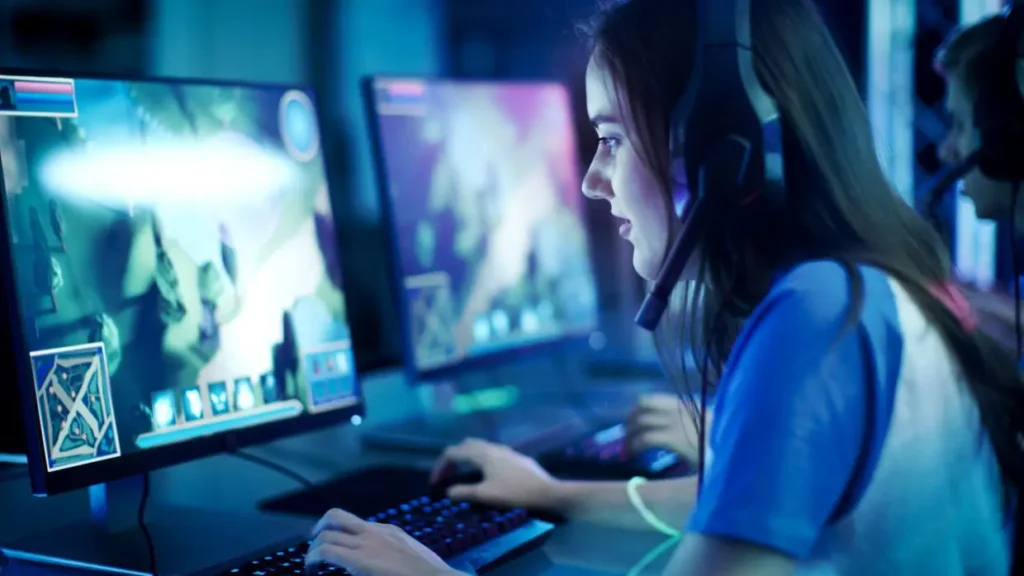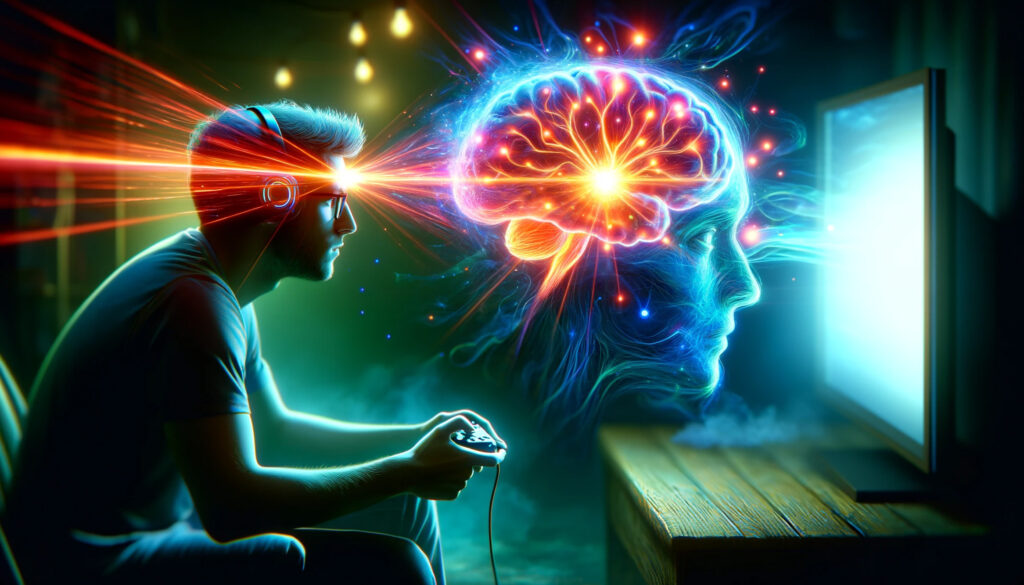According to a study of almost 2,000 kids, kids who reported playing video games for three hours or more a day outperformed kids who had never played video gaming on cognitive abilities tests that included working memory and impulse control.
The relationship between video gaming and cognitive behavior has been the subject of many studies, although little is known about the neurological mechanisms behind these associations.
What Researchers are Saying About Playing Video Games?
Researchers have observed that children who Play Video Games for three or more hours a day outperform those who never played in terms of speed and accuracy on both cognitive tasks. They also noticed that variations in brain activity coincided with the two groups’ apparent disparities in cognitive function.
According to functional MRI brain imaging tests, kids who played video games for three or more hours a day had more activity in the parts of their brains linked to memory and attention than kids who never played.
In addition, children who played video games for at least three hours a day displayed reduced activity in the areas of the brain linked to vision and higher activity in the frontal brain regions linked to more cognitively demanding tasks.
The researchers also emphasize that cause-and-effect studies are not possible in this cross-sectional study and that it is possible that youngsters who perform well on these kinds of cognitive tasks will decide to play video games. The authors also stress that the results are probably very dependent on the particular activities kids do and that their findings do not imply that kids should spend all of their time on computers, smartphones, or televisions.
Video Games and Brain Changes Relationship:
An increasing body of research indicates that playing video games can have an impact on the brain and alter numerous brain regions.
To find out how video games can affect our brains and actions, researchers have compiled and analyzed data from 116 scientific studies. Frontiers in Human Neuroscience released their review’s conclusions.
“Games have occasionally been hailed or maligned, frequently without any solid evidence to support those assertions. Additionally, since gaming is a common pastime, everyone appears to have strong feelings about it, according to Marc Palaus, the review’s original author.
Palaus and his colleagues sought to determine whether any patterns have surfaced in the literature on the effects of video games on brain activity and structure. Of the assessed research, 100 examined changes in brain behavior and function, while 22 examined anatomical changes in the brain.
Playing video games, for instance, has been shown to impair focus. Video game players exhibit improvements in a number of attention domains, such as sustained attention and selective focus, according to the reviewed research. Additionally, gamers’ attention-related brain regions are more effective than those of non-gamers, requiring less activation to maintain concentrate on challenging activities.
Are Brain-Training Video Games Beneficial?
Do you think playing brain-training games improves brain function? Some advertisements that claim this should raise suspicions. According to a group of experts from Florida State University, these statements are not support by science.
More and more people believe that brain-training applications will protect them against cognitive impairments or memory loss.
Researchers investigated whether Playing Brain-Training Games increased players’ working memory, which in turn boosted reasoning, memory, and processing speed—a process known as “far transfer.” But that wasn’t the case.
According to Neil Charness, a psychology professor and renowned expert on aging and cognition, “people can be train to become very good at tasks that you would normally consider general working memory tasks: memorizing 70, 80, even 100 digits.”
However, these abilities typically exhibit little transferability and are highly specialize. The question that seniors in particular should be worry about is whether or not mastering crossword puzzles would help them remember where their keys are. And most likely, the answer is no,” he continues.
According to Charness, aerobic exercise could be beneficial if your objective is to enhance cognitive performance. According to certain studies, the brain benefits more from aerobic exercise than from mental engagement.

How Playing Video Games Boost Memory?
On the other hand, a study that was publish in Nature discover that older persons’ cognitive ability might be enhance and some of the negative effects of aging on the brain reverse by playing a specifically make 3-D video game.
According to researchers at the University of California-San Francisco (UCSF), this offers some scientific backing for the idea that brain training can result in significant and long-lasting improvements in the field of brain fitness, which has been criticize for lacking proof.
The study participants, who were between the ages of 60 and 85, outperformed those in their 20s who were playing the game for the first time after 12 hours of training over a month. Additionally, sustain attention and working memory—two other important cognitive domains were enhance. Six months after their training ended, they were still able to use these talents.
Conclusion: The Final Verdict!
Finally, several studies show clearly that video gaming have a big effect on cognitive abilities. Seen in brain imaging findings, kids who spend a lot of time playing have improved memory, focus, and cognitive flexibility. Although Video Game could help some cognitive faculties, it is important to appreciate the restrictions of brain training games and their application to actual life cognitive benefits.
Data show that although video gaming could improve several mental processes, aerobic activity might be more beneficial for general cognitive fitness. Considering both the possible advantages and constraints in intellectual development, gaming should be approach in moderation.

